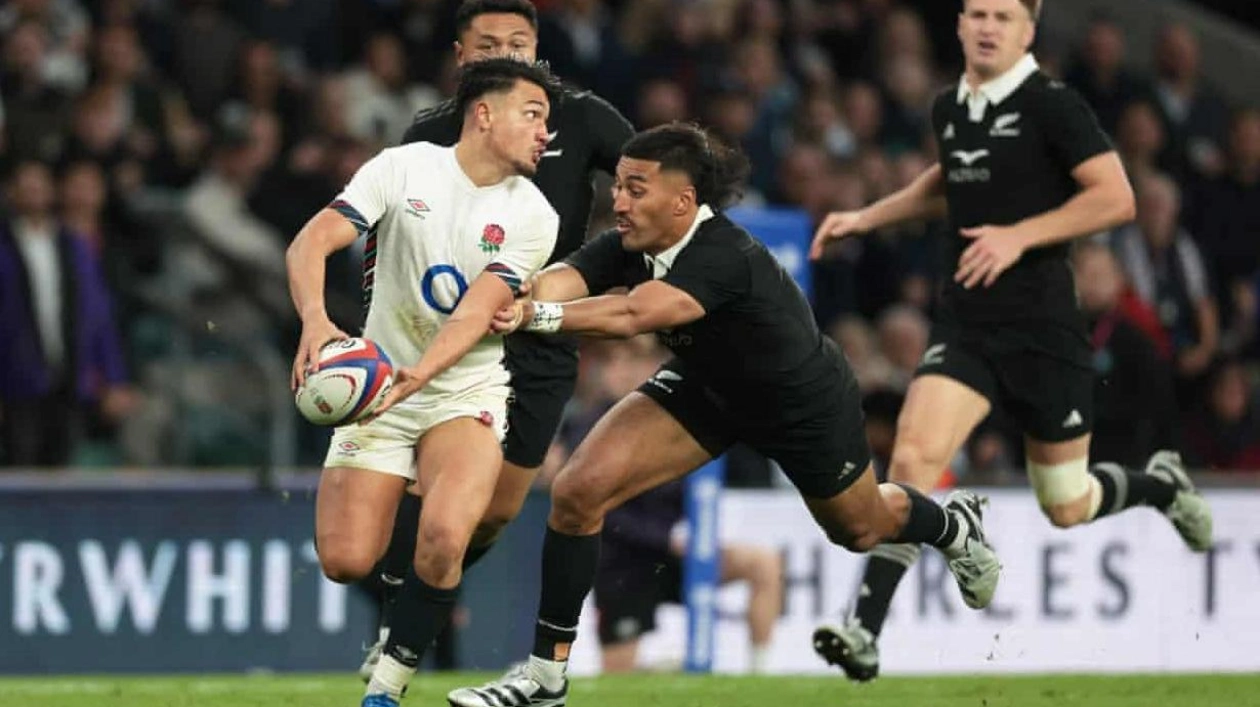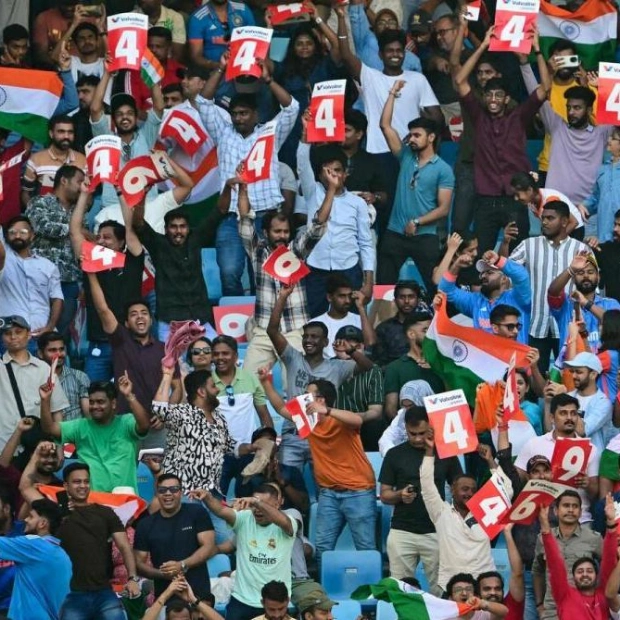Three minutes into the second half, Twickenham fell into an eerie silence, the quietest it had been since the gates opened earlier in the day. The All Blacks were making a powerful comeback, breaking through wave after wave down the left flank and then shifting towards the center of the pitch. England was struggling, their defense crumbling under the relentless pressure, with their own try-line dangerously close behind them. Scott Barrett passed the ball through Jamie George, and New Zealand's scrum-half Cortez Ratima quickly gathered it. He glanced around, spotting three attackers against only two defenders. The try was within reach.
Marcus Smith, amidst the chaos of England's desperate defense, never took his eyes off the ball, his mind racing to anticipate the next move. As Ratima made his first and second steps, Smith surged forward just as Ratima was about to release the ball. Smith intercepted the pass mid-air, seizing it and sprinting downfield. In Test rugby, time can stretch in peculiar ways, and Smith, with his exceptional ability to maximize every second, capitalized on Ratima's split-second hesitation to break open the game. He seemed to gain 10 meters before anyone else reacted, and by the time they caught up, he had covered 30 meters. When the defense finally closed in, he waited until the last possible moment before passing to George Furbank, who relayed the ball to Immanuel Feyi-Waboso for a try near the posts.
This should have been the decisive moment, the crowning achievement of one of Smith's finest performances. After 35 Tests and five years of international rugby, he is evolving into a masterful fly-half. He kicked five penalties and a conversion, orchestrated England's only try, executed a brilliant 50-22 kick, and even made a try-saving tackle on Wallace Sititi, allowing Ben Curry to secure a turnover. This should have been the match-winner. But it wasn't. When Smith left the field, along with scrum-half Ben Spencer, England lost their momentum. They ceased attacking and began absorbing the blows instead.
If you're not attacking the All Blacks, you're losing to them. Their comeback felt inevitable. You can beat New Zealand, but you can never truly defeat them. They just keep coming. Over the past decade, England has lost three games by a single point and four more by a narrow margin. This was one of the most agonizing losses. In the final five minutes, England had three opportunities to win the game. One was when they were still five points ahead but failed to stop Mark Tele'a from scoring in the corner. Another was when they were two points behind but had a man advantage, yet George Ford's penalty kick hit the upright. The last chance came when an attacking scrum set up a drop goal opportunity, but Ford's kick missed the posts. Despite all their efforts, England had all the chances they needed but lacked the ability to capitalize on them.
It's easy to speculate about what could have been, but one can't help but wonder what Smith might have achieved with five more minutes on the field. All Blacks captain Scott Barrett expressed surprise at Steve Borthwick's decision to replace both Smith and Spencer, given their control over the game: “Must have been a tactical move.” The attacking threat England posed with Smith on the field disappeared entirely once he was off. While Spencer made errors in his first start, particularly when he was caught off guard by the referee's instructions, he knows how to manage a game. Harry Randall, a skilled and agile scrum-half, found himself in a mess trying to orchestrate England's attack in those final moments. Borthwick's decision to make the substitutions seemed premeditated rather than reactive to the game's flow.
England is left with wounded pride and more questions about what might have been.
Source link: https://www.theguardian.com






